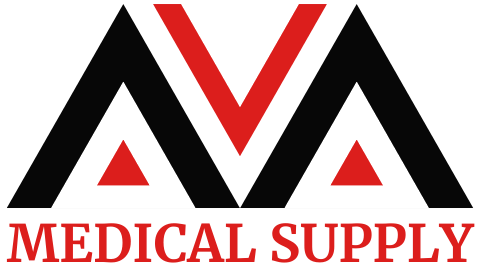
Starting a durable medical equipment (DME) business or becoming a Durable medical equipment supplier means navigating a maze of regulations. One of the first and most important steps is obtaining a DME license. But what exactly is it? And why is it so essential? And how can you secure one without unnecessary delays?
In this blog, we will go over everything you need to know about getting a DME license, including state-specific requirements, forms, common mistakes, and how Ava Medical Supply offers licensed suppliers fast, compliant dropshipping.
What Is Durable Medical Equipment (DME)?
Durable Medical Equipment (DME) includes medical devices that are:
• Built for the long haul
• Used for medical purposes
• Most often used at home
• Generally ineffective for non-injured individuals
Some of the most common DME products include:
Durable Medical Equipment (DME) includes medical devices that are:
• Wheelchairs and walkers
• CPAP machines
• Hospital beds
• Patient lifts
• Osteoarthritis braces (like L-coded knee and hip braces)
DME is different from everyday medical supplies like bandages or syringes it’s long-term and often eligible for insurance or Medicare reimbursement.
Who Needs a DME License?
If you sell, rent, or distribute durable medical equipment to patients — even through B2B channels you likely need a DME license.
This includes:
• B2B DME suppliers and wholesalers
• Dropshippers fulfilling orders for clinics or providers
• Companies billing Medicare or other iznsurance payers
Even if you never see the patient face-to-face, your business may still be regulated if the products you supply are eligible for coverage. Licensing is most often required for Medicare enrollment, and it helps to ensure compliance with state and federal regulations.
DME License Requirements by State
DME licensing requirements vary from state to state. Home medical equipment (HME) requires additional licenses in some states, especially if products are shipped directly to patients. Here’s a quick look at how a few states compare:
• State License Required Governing Body Notes
• Florida Yes AHCA Requires HME application form
• Texas Yes DSHS Background check required
• California Yes CDPH CMS accreditation mandatory
Before shipping to any state, it’s critical to confirm licensing rules especially if you’re dropshipping directly to patient homes.
How to Apply for a DME License
First and foremost, you need to register your business and select a legal structure, such as an LLC or Corporation. Finish the application after that. Florida, for instance, requires the AHCA Form 3110-1005. Give details about your physical location.
Background checks
Level 2 background checks may be required for owners and key employees.
Get accredited
You will need accreditation from a body approved by CMS, such as NSC or BOC, in order to bill Medicare. List of Required Documents Here is a typical requirement list to help you get ready:
• Articles of Incorporation or LLC formation docs
• Federal Tax ID (EIN)
• Sales tax permit (if applicable in your state)
• Proof of liability insurance
• Accreditation certificate (if billing Medicare)
• Background screening attestation
• Completed DME/HME application form
Even if you don’t carry physical inventory, you’re still accountable as the billing entity.
Common Mistakes to Avoid
Many first-time suppliers make avoidable errors that delay approval:
• Listing a residential or P.O. box address
• Missing signatures or supporting documents
• Not understanding renewal deadlines
• Skipping accreditation (especially for Medicare)
• Assuming one license covers all 50 states (it doesn’t)
How Ava Medical Supply Supports Licensed DME Suppliers
At Ava Medical Supply, we specialize in helping licensed suppliers succeed with:
• ✅ PDAC-approved L-coded products (for insurance billing)
• 🚚 Fast next-day dropshipping
• 🏥 Nationwide delivery, with tracking
• 📦 No inventory handling for you
• 📝 Support to meet state and federal compliance
FAQs
It’s a permit that allows your business to legally sell or rent durable medical equipment in a specific state.
In most states no. You risk fines, denial of insurance reimbursement, and legal penalties.
The average is 4–8 weeks depending on the state and completeness of your application.
Depending on the state and whether accreditation is required, costs range from $300 to more than $1,000.
No. Each state has its own requirements. You may need multiple licenses if shipping nationally.
Conclusion
Getting a DME license is your first step toward running a compliant and successful medical supply business. Being properly licensed opens doors to Medicare and insurance billing and builds trust, regardless of whether you are an independent supplier or managing the fulfillment requirements of a clinic.
📞 Need help sourcing PDAC-approved DME products?
Ava Medical Supply is here to help you succeed with reliable dropshipping, Medicare-compliant products, and fast delivery across the U.S.













